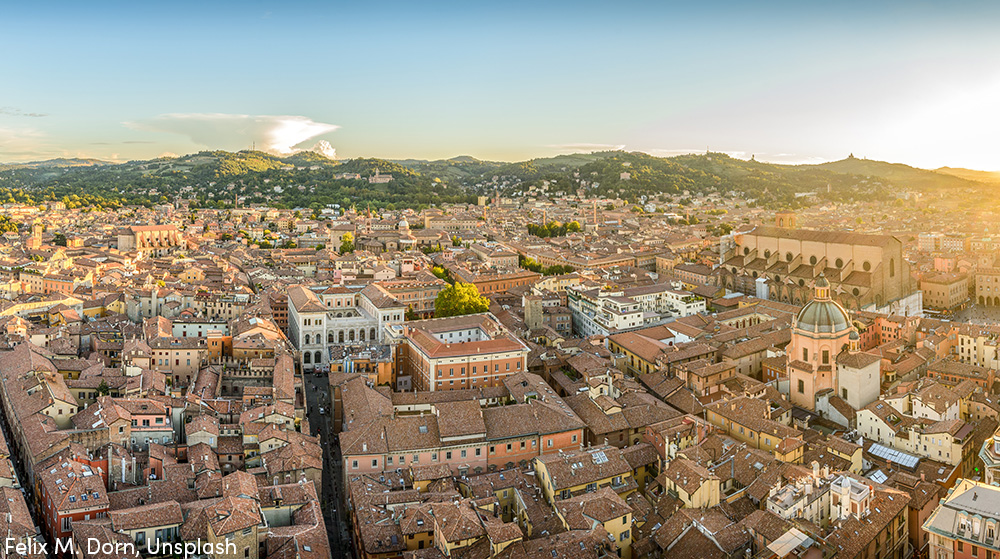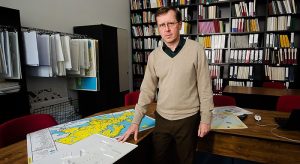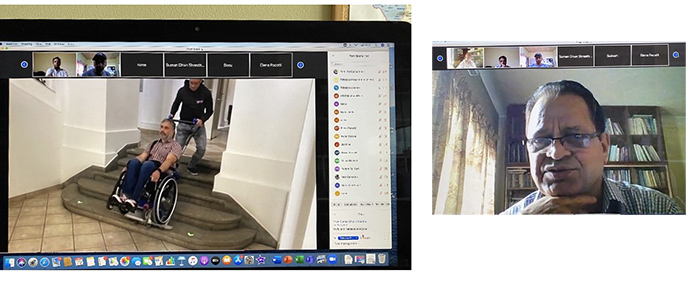Virtual visits brought partners and stakeholders together to discuss local solutions

Thanks to the virtual visits to the TEIRESIAS centre at the Masaryk University in the Czech Republic and the University of Bologna, Italy, it has been possible for the EATHEN project members to observe the local environment and the services for students with disabilities and from marginalized groups to support their studies in higher education. The virtual tours have also given the partners from six universities and stakeholders a possibility to get together and combine their expertise and learn from each other as they plan support centres. The support centres will be created during the project to help students with disabilities and from marginalized groups to continue their learning processes in higher education in Nepal.

Three weeks in May 2020 were dedicated to visiting the support center for students with special needs TEIRESIAS at Masaryk University in Brno. The EATHEN partners from Nepal, Italy and Finland were virtually walking through the centre, looking at the premises and equipment and speaking with its staff.
In the follow up discussions among partners and the Teiresias experts, we were clarifying the needs of Nepalese students and ways to provide appropriate support at their home universities. These enriching discussions touched, not only educational, but also geographical and cultural aspects. It showed us once again how important it is to thoroughly consider the wider context of countries that shall benefit from the project outcomes.

The Virtual Tours at the University of Bologna were (metaphorically) like a first taste of what a real experience in Bologna could be. The encounter with different realities and testimonials (university professors, students, experts, some of whom are disabled) made it possible to stimulate the participants to reflect on what the right to quality education for all means, including the Higher Education environment. To guarantee an access to equitable education for students with disabilities and students from marginalized groups, the virtual tours have attempted to recreate and emphasize the importance of the network and network work, as a means of designing, experimenting and finding together the best solutions for everyone. And we hope that real tours will be possible in the next future!
In addition to the virtual tours, online meetings have been organized to bring together legitimate stakeholders of the project and to listen to their proposals concerning the support centre services. These meetings have supported the remote and local tours organized by Kathmandu University, Nepal Open University and Tribhuvan University in giving voice to the perspective of students with disabilities and from marginalized groups and various stakeholders. For example, Kathmandu University has facilitated dialogue between approximately 50 representatives of stakeholders from Tribhuvan University and Kathmandu University, Nepal Association for the Blind (NAB), Nepal Association for the Welfare of the Blind (NAWB), Blind Youth Association Nepal, Open University and the departments of Education, Humanities and International Relations and Buddhist Studies, as well as European partner universities online.
Authors
Helena Vaďurová, Senior Lecturer, Masaryk University
Elena Pacetti, Associate Professor in Didactic and Special Pedagogy, University of Bologna
Tuulia Kiilavuori, Senior Lecturer, JAMK University of Applied Sciences

